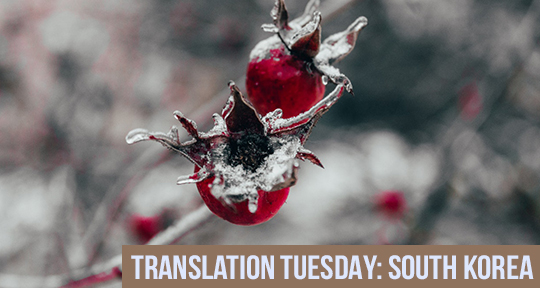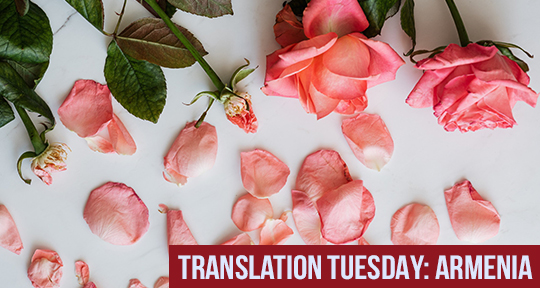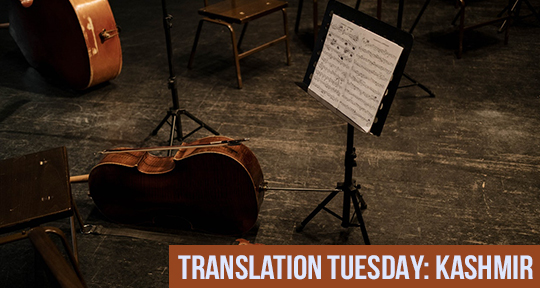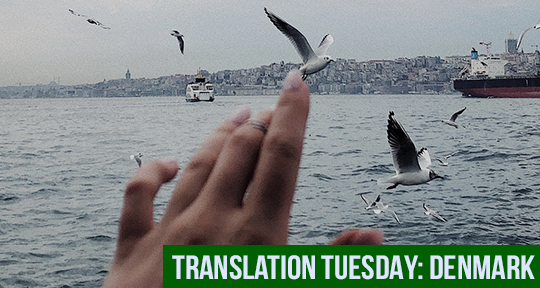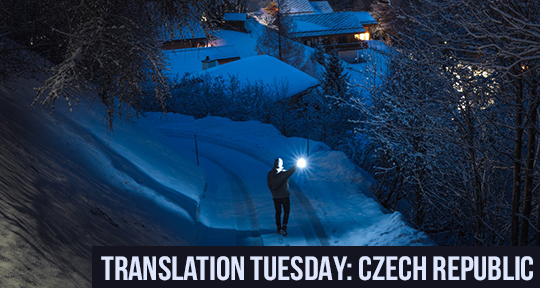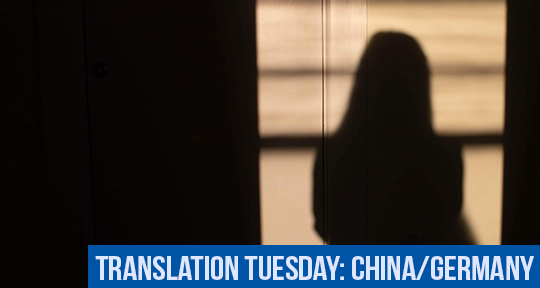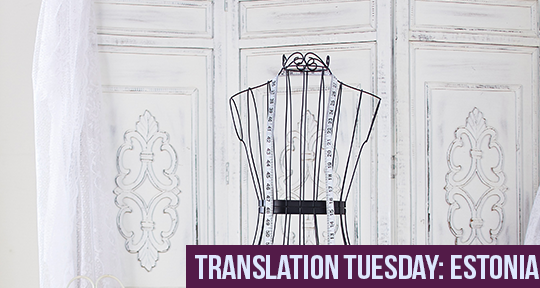This week’s Translation Tuesday features one of the foremost exponents of the Turkish novel in the late-nineteenth and early-twentieth century, Halid Ziya Uşaklıgil. As his works have been scarcely translated into English, we are delighted to feature this short story translated by Daniel Koehler. Powerfully manipulating the reader’s perspective of an unfolding scene as the narrator follows an umbrella, then a hand, then a person—hear from Koehler about the author’s advocacy of realism’s necessity and his assimilation of other figurative devices within this enchanting story.
“Having dabbled with romanticism earlier in his career, Halid Ziya Uşaklıgil sat firmly within a realist tradition by the time the collection containing this story was published. His cultural partisanship was conscious and deliberate. In the late 1880s, his famous treatise, Hikaye (The Story), advanced his theories on the superiority of realism over romanticism in nineteenth-century French literature. “The most unsavoury reality,” he argued, “is preferable to the most ornamented fantasy.” If Uşaklıgil dons the mantle of the literary realist, to portray the world simply as it is, he does not shy away from the use of figurative devices. In what might be construed as a nod to Stendhal, he entitled one iconic novel The Blue and the Black. Symbolism, particularly the symbolism of colour, permeates that work, in which blue represents idealism and hope, black disappointment and tragedy. Similarly, the unmarried young lady in this story shields herself with a white umbrella, while five years later, the umbrella in the hands of the mourning widow is black. The clothes of the cheerful girl on the embankment are multicoloured and bright; as a newly married woman, she makes an excursion with her husband to Göksu, the village of the sky-blue waters; but the clothes of the grieving lady on the ferry are monochrome and dark. The only constant is in Zerrin’s blonde hair, which passes from mother to daughter, and in her name itself: the Persian word for golden.
The story presents unique challenges for the translator. First and foremost is the extensive use of the ornate and intricate sentence structure that Ottoman Turkish inherited from literary Persian. Contemporary English, with its affinity for the concise, can feel unwieldy as a tool for the representation of Uşaklıgil’s prose. Generally, sentences have been preserved, although punctuation has been used where appropriate to separate clauses. A further challenge arises from the use of symbolism to which the previous paragraph alludes. A Turkish speaker may well notice the chromatic association of the words Göksu or Zerrin; someone unversed in the language will not. The use of footnotes, and the presentation of the instant note, constitute an attempt by the translator to remedy this lacuna.”
—Daniel Koehler
An elegant, white umbrella . . . while looking from my window down onto the embankment, I saw this umbrella, first from a distance—like a small, frothy, playful, flippant wave that had escaped from the sea for a while to go for a stroll on the embankment—walking along with a prancing undulation . . . After I sighted it, I forgot everything, I looked at nothing else, something I could sense in its bearing, in its walk conveyed even from a distance that this white umbrella, in that entire sequence of umbrellas, was a most joyful, a most merry little imp . . .
It slowly bobbed along the embankment towards my window. I could discern the fine gauze, ruffled in places by broad silk ribbons as it extended over the tulle towards the peak of the umbrella, the lacework that bunched up into little frills as it draped from the edges, and slightly below that, part of the slender yellow shaft. Looking further down—I could only see two fingers’ length; within a black glove that rested on a handle coated in red glass, its ample silk tassels swinging from the edge of the cords, I saw a hand, small enough to complete the ornamentation of this elegant umbrella . . . A hand that conveyed an unbounded impression of elegance in holding that slender shaft. A hand that seemed to wink at you and say: “Well, since you’ve seen me, you’ve realised what sort of person I belong to, haven’t you?” Yes, I’d realised; the figure that was shrouded within the flowing silk of a light purple yeldirme¹ under this umbrella formed of froth, like a lilac that had blossomed under the shadow of a white rose, could only be as I had discovered it . . .
This was not a yeldirme, it was something rather different; it partly resembled a ferace², but partly a yeldirme, so that, in sum, it looked like no item of clothing at all. Perhaps it was because of this, because it had come into being as the product of a young girl’s keen aesthetic sense, that it was pleasing to the eye. It was so simple that it had not a single piece of lacework, nor a single small ribbon. Yet its simplicity was so delightful that one’s eyes could not tire of taking in its delicate folds, rippling like an ornament from head to toe.
As they passed . . . did I mention they were two people? It was likely her mother, who waved at an empty paving stone on the embankment and spoke.
“Zerrin, let’s go this way!” . . .
They went, she receded; yet I had only seen that white umbrella! And that purple yeldirme, that black hand, and I had also heard a name: Zerrin! . . . I murmured the name to myself like a pleasant song: Zerrin? . . . This name matched every other element, an arrangement of elements composed of colours: white, purple, and black. Zerrin! . . . A bouquet of flowers formed of a great white rose, of purple lilacs and yellow hibiscuses, and, at the very base of the stem, bound by a black ribbon; yet the black formed a blemish on this collection of playful colours.
They were walking away, disappearing; after they had eventually faded completely out of view, and I was on the verge of withdrawing from my window, I saw the white umbrella appear once more.
“Oh! They are returning, they will pass by again,” I said. Now I would see the face of this bouquet, a face to which I had already given form in my mind’s eye. Zerrin! . . . As this name ignited my fantasies, I envisioned a delicate white face tinged with a vague pink. This face had faintly coloured lips, and eyebrows that seemed to have been painted with liquid gold, collected from a moonlit night only to evaporate, leaving but a shadow; eyes that smiled with blue, with green, with yellow, or with a colour formed of a clay kneaded from all of these . . . They were approaching, I was watching intently, suddenly the white umbrella was cast back slightly, the face I’d been waiting for was completely exposed, framed by a fine gauze headscarf . . . READ MORE…






